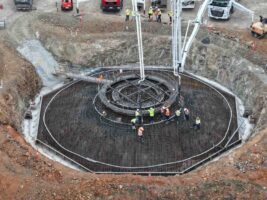A senior member of Australia’s ruling Coalition has conceded that Australian consumers are ready to leave the grid, and rely instead on solar and storage, and suggested that state-owned assets such as electricity networks need to be sold quickly before they lose too much value.
 The admission was made on ABC News Radio on Friday morning by Steve Ciobo, a parliamentary secretary in the Tony Abbott government and the Federal Member for Moncrieff, in Queensland, where the state government is looking to privatise its energy assets.
The admission was made on ABC News Radio on Friday morning by Steve Ciobo, a parliamentary secretary in the Tony Abbott government and the Federal Member for Moncrieff, in Queensland, where the state government is looking to privatise its energy assets.
The comments are interesting because it is the first time that a senior Abbott government member has acknowledged that rooftop solar and the emergence of battery storage is going to disrupt the market and devalue network assets.
It is signifiant because it recognises what is widely accepted within the industry itself – that cleaner and distributed energy is going to grow, and underlines why the Coalition governments in Queensland and NSW are keen to privatise their electricity grid sooner rather than later.
“If you look at for example, the poles and wires business, there is no doubt that there is massive change happening,” Ciobo said in the interview.
“That’s a market where I have little doubt in the future that you’ll see more and more people drop off the electricity grid, because they’ve got batteries and solar panels. So I think that the sooner we lease assets like that and realise their value, the better, because it’s an asset that just becomes worth less every single day.”
Interviewer Marius Benson then asked if the assets held any value, given the likelihood of grid defection. Ciobo said that would be up to the market, but the governments would be wrong to hang on to the assets if they were going to be worth less in the future.
Ciobo is the Parliamentary Secretary to the Minister for Foreign Affairs (Julie Bishop), and the Parliamentary Secretary to the Minister for Trade and Investment (Andrew Robb).
Australian network operators are becoming increasingly aware of the threat of mass grid defection. A CSIRO study that included the networks suggested nearly half of the country’s energy requirements could be sourced from distributed generation within a few decades, and one third of consumers could quit the grid if networks did not offer an economically competitive service.
Numerous analyst reports have spoken about the economic drivers of grid defection – it will be cheaper for consumers to have solar and storage than remain connected to the grid within a few years – and some networks are beginning to re-callibrate their business models.







